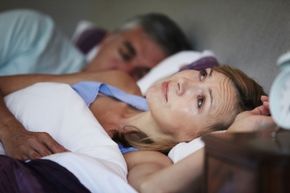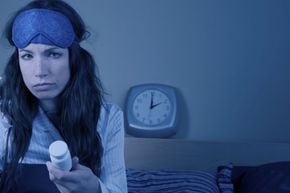When you haven't been getting enough sleep, things can start to get a little weird. A little fuzzy. Your memory seems cloudy. You can't concentrate and you're irritable, tense and anxious. Above all, you're tired. And as any "Fight Club" fan knows, when you have insomnia, you're never really asleep and you're never really awake.
Between 50 and 70 million Americans live with a chronic sleep disorder, and the Sleep Health Foundation estimates that as many as 10 percent of adults are experiencing mild insomnia at any time, making it the most prevalent sleep problem among Americans [sources: Kolbert, Sleep Health Foundation]. Adults need, on average, between 7 and 9 hours a sleep every night. But according to a 2011 poll, more than 50 percent of Americans ages 13 to 64 admit they don't get the recommended amount because they have trouble sleeping every night.
Advertisement
Symptoms of insomnia -- which, aptly, means 'no sleep' in Latin -- include not only a difficulty falling asleep but also difficulty staying asleep [source: Neubauer]. Insomniacs may also have poor quality sleep because they wake up frequently throughout the night, sleep for too few hours a night, and as a result experience daytime exhaustion.
But that's not where it ends. Normally it should take a person no more than 20 minutes to fall asleep once her head has hit the pillow; insomniacs, in comparison, frequently need 30-45 minutes (or more) to fall asleep at night. Difficulty falling asleep may be how most of us would define insomnia (which makes sense as it's the most common symptom), but insomnia causes side effects that follow you throughout the day, such as fatigue, tension headaches, anger, depression and gastrointestinal distress, as well as anxiety and worry. And that's not just worrying about to-do lists and your job -- insomniacs also have increasing worry about their sleep. People who don't get enough sleep are also at a higher risk for chronic diseases such as type 2 diabetes, stroke and hypertension.
Insomnia may also increase your risk of accidents -- as many as 5 percent of adults admit they've fallen asleep while behind the wheel of their car at least one time during the last 30 days, and sleep deprivation is known to have been a factor in some major accidents such as the Exxon Valdez oil spill and the Chernobyl nuclear accident [sources: Kolbert, Peri].
Advertisement


